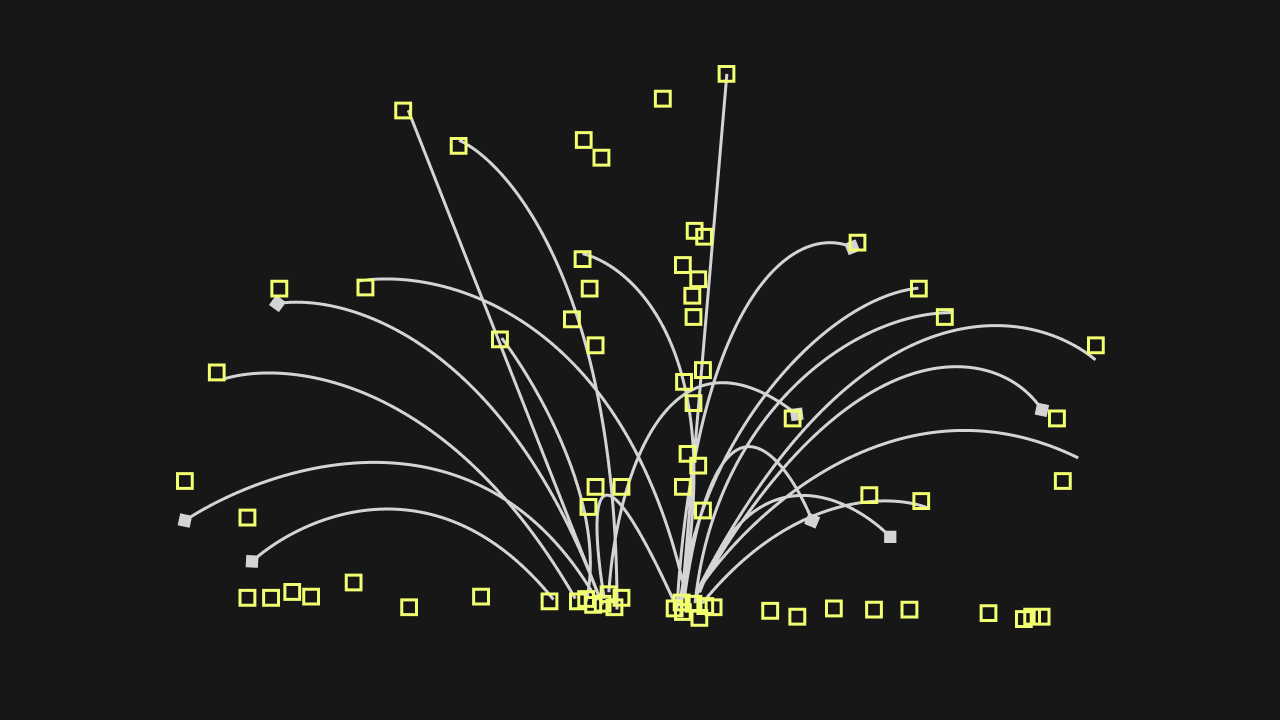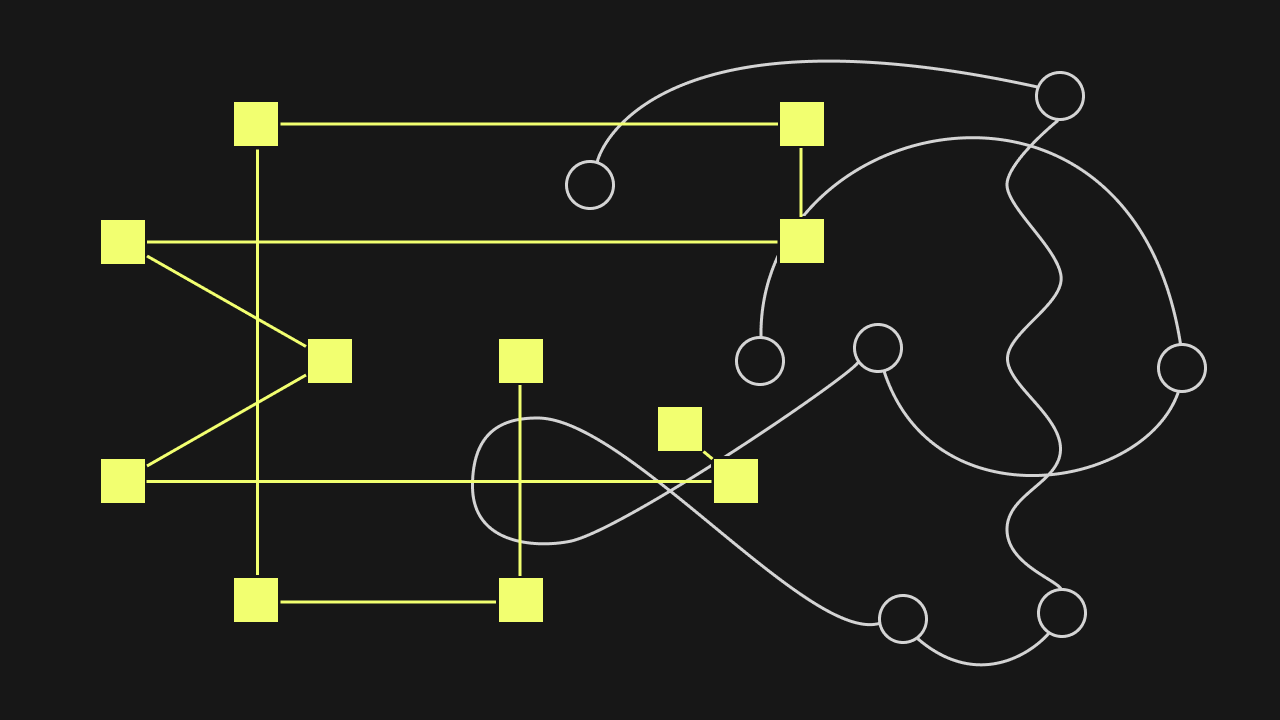
Key Takeaways
Agentic AI is moving beyond theory to deliver transformational value through practical enterprise use cases.
- What are the use cases: In finance, AI agents are orchestrating the invoice-to-pay process. In supply chain, they can autonomously generate purchase orders. For HR, an agent can manage the entire employee onboarding workflow.
- The business impact: These examples demonstrate the power of agentic AI to handle not just simple tasks, but entire business functions.
- The key shift: A move toward a new level of intelligence and autonomy in automation.
As enterprises constantly seek advanced technological frontiers, a new paradigm of artificial intelligence is redefining what’s possible: Agentic AI. This is not simply another iteration of automated tools; it represents a profound leap, empowering systems to reason, plan, and autonomously execute complex objectives. For leaders across the globe, grasping the advanced capabilities and transformative potential inherent in Agentic AI use cases is a strategic imperative.
This article aims to elucidate the profound concept of Agentic AI, its advanced capabilities, and its transformative potential within critical business contexts. We will precisely define Agentic AI, clearly distinguish it from other AI forms (such as traditional Generative AI), and explain its core function as an autonomous, goal-driven technology meticulously designed to supercharge enterprise operations. By showcasing various real-world Agentic AI use cases and powerful Agentic AI examples across diverse industries—including finance, human resources, manufacturing, and customer service—and detailing its profound benefits (such as automating complex business processes, radically enhancing operational agility, dramatically improving efficiency, and creating novel revenue streams to unlock scalable impact), this content delivers a comprehensive synthesis. In essence, it serves as an indispensable resource for organizations keen to explore and implement Agentic AI solutions to achieve revolutionary results.
Decoding Agentic AI
Agentic AI represents a pivotal advancement in artificial intelligence, transcending the capabilities of earlier AI forms. While traditional automation executes predefined tasks based on rigid rules, and even basic Generative AI primarily creates content based on learned patterns, Agentic AI introduces a new layer of autonomy and intelligence. An Agentic AI system, or “AI agent,” is designed to:
- Understand Goals: It comprehends high-level objectives rather than just specific instructions.
- Reason and Plan: It can autonomously break down complex goals into a series of actionable steps, even for novel situations.
- Act Autonomously: It executes tasks and interacts with various systems independently.
- Adapt and Learn: It can adjust its plans in real-time based on new information, handle unforeseen exceptions, and continuously improve its performance.
- Manage Exceptions: Unlike brittle rule-based systems, it can intelligently identify and resolve issues that deviate from the expected path.
This distinction is crucial. While Generative AI might draft a response, an Agentic AI agent could manage an entire customer inquiry end-to-end, diagnosing the issue, pulling data from multiple systems, drafting communications, and even initiating follow-up actions. This inherent capability makes Agentic AI use cases profoundly impactful across the enterprise.
Why Agentic AI Transforms Business Operations
The adoption of Agentic AI delivers a compelling array of benefits that directly propel an organization’s efficiency, agility, and competitive stance. These advantages are unparalleled by earlier automation paradigms.
- Automating Complex Business Processes: Agentic AI can manage intricate, multi-step workflows that span disparate systems and involve nuanced decision-making. This capability is vital for automating processes previously considered too complex for traditional automation.
- Radically Enhancing Operational Agility: With AI agents capable of adapting to real-time changes and handling exceptions autonomously, businesses can pivot faster to market shifts, regulatory changes, or unforeseen disruptions. This fosters an unprecedented level of operational nimbleness.
- Dramatically Improving Efficiency: By automating entire workflows and intelligently managing deviations, Agentic AI minimizes manual intervention, reduces cycle times, and frees human resources for strategic endeavors. This leads to substantial productivity gains.
- Creating New Revenue Opportunities: Agentic AI can enable entirely new business models or service offerings by automating complex customer interactions, optimizing resource allocation, or personalizing experiences at scale, unlocking previously untapped revenue streams.
- Unlocking Scalable Impact: Unlike fragmented automation efforts, Agentic AI provides a cohesive approach to process transformation, allowing organizations to scale intelligent automation across the entire enterprise with consistent results.
These transformative benefits underscore why exploring Agentic AI use cases is a strategic imperative for any large enterprise.
Key Agentic AI Use Cases Across Industries
The practical application of Agentic AI is broad and impactful, promising to redefine core operations across numerous sectors. Here are prominent Agentic AI examples and their profound influence:
1. Agentic AI in Finance: Revolutionizing Financial Operations
In finance, Agentic AI in finance is transforming meticulous, data-heavy processes.
- Automated End-to-End Accounts Payable (AP): Agentic AI can receive invoices in various formats, intelligently extract and validate data against purchase orders and goods receipts, manage discrepancies by autonomously contacting vendors, route approvals based on complex rules, and initiate payments—all with minimal human oversight. It handles variations like partial shipments or mismatched line items by itself.
- Intelligent Financial Reconciliation: Agentic AI agents can analyze vast amounts of transactional data from disparate systems, automatically identify variances, investigate root causes (e.g., cross-referencing bank statements, internal ledgers, and external vendor data), and even propose corrective journal entries. This significantly reduces closing cycles and human effort.
- Automated Loan Origination: From initial application to disbursement, Agentic AI in finance can gather applicant data, perform credit checks using external APIs, verify documents, assess risk based on dynamic criteria, and automatically route for approval, accelerating loan cycles and enhancing accuracy.
2. Agentic AI in HR: Elevating the Employee Lifecycle
Agentic AI in HR is streamlining human resources functions, improving efficiency and the employee experience.
- End-to-End Employee Onboarding/Offboarding: An Agentic AI system can orchestrate the entire onboarding journey. It automatically triggers IT for system access provisioning, alerts facilities for equipment setup, manages paperwork and digital form completion, initiates payroll enrollment, and schedules mandatory training—all while adapting to specific departmental or role requirements. It proactively manages dependencies and sends reminders.
- Automated HR Service Delivery: AI agents can handle a wide array of employee inquiries beyond simple FAQs. They can process complex leave requests, benefits changes, and internal transfers by accessing various HR systems, validating data, and triggering appropriate workflows, escalating only truly unique cases.
3. Agentic AI in Manufacturing: Driving Production Efficiency
Agentic AI in manufacturing is optimizing complex production processes and supply chains.
- Predictive Maintenance and Autonomous Scheduling: AI agents can continuously monitor machinery performance data, predict potential failures, and autonomously adjust production schedules to facilitate proactive maintenance, minimizing downtime and optimizing resource utilization.
- Automated Quality Control and Defect Resolution: Agentic AI in manufacturing uses computer vision to detect defects on production lines. Beyond flagging, it can then autonomously trigger rework processes, order replacement parts, and update inventory records.
4. Agentic AI in Supply Chain: Resilience and Optimization
Agentic AI in supply chain is critical for building resilient and efficient global logistics networks.
- Dynamic Inventory Optimization: AI agents can analyze real-time demand fluctuations, supplier lead times, and geopolitical events to autonomously adjust inventory levels across multiple warehouses, minimizing holding costs and preventing stockouts, even in volatile markets.
- Automated Logistics Orchestration: From order placement to final delivery, Agentic AI in supply chain can dynamically optimize shipping routes, select carriers, manage customs documentation, and proactively reroute shipments in response to disruptions (e.g., weather, port closures).
5. Agentic AI in Banking: Enhancing Financial Services
Agentic AI in banking is transforming operations from front-office customer interactions to back-office processing.
- Intelligent Customer Service and Resolution: AI agents can manage complex customer inquiries end-to-end, diagnosing issues, retrieving account information from various systems, explaining policy details, and initiating service requests or transactions autonomously, providing a highly personalized experience.
- Automated Compliance Monitoring: Agentic AI in banking continuously monitors transactions and communications for suspicious activities, flags potential compliance breaches (e.g., AML, KYC), and automatically generates audit reports, significantly reducing manual compliance burdens.
6. Agentic AI in Insurance: Streamlining Core Operations
Agentic AI in insurance is revolutionizing everything from claims to policy management.
- Autonomous Claims Processing: AI agents can receive claim submissions, intelligently extract and validate data from unstructured documents (e.g., photos, doctor’s notes), assess initial liability, draft communications to policyholders and adjusters, and even initiate payments for straightforward cases. They manage the entire supply chain process with minimal human intervention.
- Dynamic Policy Underwriting: Agentic AI in insurance can gather extensive data points on applicants, cross-reference external databases for risk factors, and generate customized policy proposals. It can adapt to new risk signals in real-time, assisting underwriters in pricing policies with greater precision.
7. Agentic AI in Retail: Personalizing Experiences and Optimizing Operations
Agentic AI in retail is enhancing both customer-facing interactions and backend logistics.
- Hyper-Personalized Customer Journeys: AI agents can manage entire customer journeys, from personalized product recommendations based on Browse history and purchase patterns to proactively addressing potential issues (e.g., suggesting alternative products if an item is out of stock) and automating post-purchase support.
- Automated Inventory Management: Agentic AI in retail can continuously monitor stock levels across multiple stores and warehouses, predict demand fluctuations, and autonomously trigger reorders or inventory transfers to optimize availability and minimize waste.
These diverse Agentic AI use cases underscore the pervasive impact this technology is set to have across the enterprise.
Explore Intelligent Agentic AI Solutions
While many platforms discuss the promise of Agentic AI, Kognitos is a safe AI automation platform uniquely positioned to deliver intelligent, Agentic AI solutions that translate directly into transformative results for large enterprises. Unlike traditional Robotic Process Automation (RPA)—which is rigid, programming-dependent, and struggles with exceptions—Kognitos empowers businesses with natural language process automation that embodies the true power of Agentic AI.
Kognitos distinguishes itself by:
- Native AI Reasoning: Kognitos’s core AI reasoning engine understands the intent of a process described in plain English. This enables Kognitos’s AI agents to manage complex, multi-step workflows, handle unstructured data, and make intelligent decisions without requiring explicit programming for every scenario. This is the essence of true Agentic AI.
- Intelligent Exception Handling: Agentic AI thrives on managing the unexpected. Kognitos’s patented exception handling allows its AI agents to intelligently detect, diagnose, and resolve unforeseen exceptions or to seamlessly integrate human-in-the-loop guidance. This ensures resilient automation that doesn’t break down when conditions deviate.
- Empowering Business Users: Kognitos democratizes the power of Agentic AI. Business leaders in finance, HR, and operations—those who truly understand their processes—can directly define, modify, and deploy sophisticated AI agents using natural language. This radically enhances operational agility by eliminating IT bottlenecks.
- Enterprise-Grade, Non-Generic AI: Kognitos provides robust, secure, and scalable artificial intelligence specifically engineered for demanding enterprise process automation. It is not a generalized AI AI tool but one purpose-built to meet the rigorous demands and compliance requirements of large organizations deploying sophisticated Agentic AI use cases.
- Beyond Workflow-Only or Backend-Heavy: Kognitos’s approach consolidates AI capabilities directly into the automation itself, reducing the need for extensive, high-level orchestration across disparate products. This allows businesses to achieve transformative results without being limited by complex backend development or siloed IT initiatives.
By leveraging Kognitos, organizations can confidently explore and implement powerful Agentic AI use cases, achieving unparalleled productivity, radical operational agility, and significant new revenue opportunities across their operations.
Implementing Agentic AI
Adopting Agentic AI solutions requires a strategic approach to maximize impact and mitigate risks.
- Identify High-Value Processes: Begin by pinpointing complex, exception-prone, or high-volume business processes that currently drain significant resources or hinder agility. These are ideal Agentic AI examples.
- Embrace Natural Language Platforms: Choose an AI automation platform like Kognitos that allows business users to define processes in natural language. This ensures closer alignment between business needs and automation capabilities.
- Start with Pilot Projects: Implement Agentic AI solutions incrementally, beginning with pilot projects to validate effectiveness, gather insights, and build internal expertise before scaling.
- Foster Human-AI Collaboration: Design Agentic AI systems to augment human capabilities, not replace them. Emphasize human-in-the-loop mechanisms for critical decisions and leverage AI to free human talent for strategic work.
- Prioritize Data Quality and Governance: Agentic AI systems rely on high-quality, well-governed data. Invest in data management strategies to ensure the AI agents have access to accurate and reliable information.
- Continuous Learning and Optimization: Agentic AI solutions continuously learn from operational data. Establish frameworks for ongoing monitoring, evaluation, and optimization to ensure sustained performance and adaptation to evolving business needs.
By following these principles, organizations can successfully unlock the transformative power of Agentic AI use cases.
The Future of Enterprise Operations with Agentic AI
The trajectory of Agentic AI is unequivocally towards increasingly autonomous, intelligent, and pervasive enterprise operations. The future will see:
- Self-Optimizing Business Units: Agentic AI agents will manage entire departments or business functions, continuously optimizing processes, resource allocation, and strategic responses.
- Predictive Problem Solving at Scale: AI agents will proactively identify and resolve potential issues across the enterprise before they escalate, moving from reactive troubleshooting to intelligent foresight.
- Dynamic Resource Allocation: Agentic AI examples will include systems that dynamically allocate human and technological resources based on real-time demand and operational needs.
- Hyper-Personalized Interactions: Agentic AI will enable profoundly personalized experiences for customers and employees alike, anticipating needs and delivering tailored solutions at an unprecedented scale.
The transformative power of Agentic AI use cases promises to reshape the very fabric of enterprise operations, leading to unprecedented levels of agility, efficiency, and innovation.
Discover the Power of Kognitos
Our clients achieved:
- 97%reduction in manual labor cost
- 10xfaster speed to value
- 99%reduction in human error
Agentic AI use cases span various industries, including automating end-to-end financial processes (like accounts payable and reconciliation in Agentic AI in finance), streamlining complex HR functions (e.g., employee onboarding in Agentic AI in HR), optimizing manufacturing operations (e.g., production scheduling in Agentic AI in manufacturing), enhancing customer service through proactive issue resolution (Agentic AI in retail), and improving risk analysis (Agentic AI in banking and Agentic AI in insurance). These Agentic AI examples showcase its ability to manage exceptions, learn, and adapt autonomously, driving radical efficiency and new revenue opportunities across the Agentic AI in supply chain.








